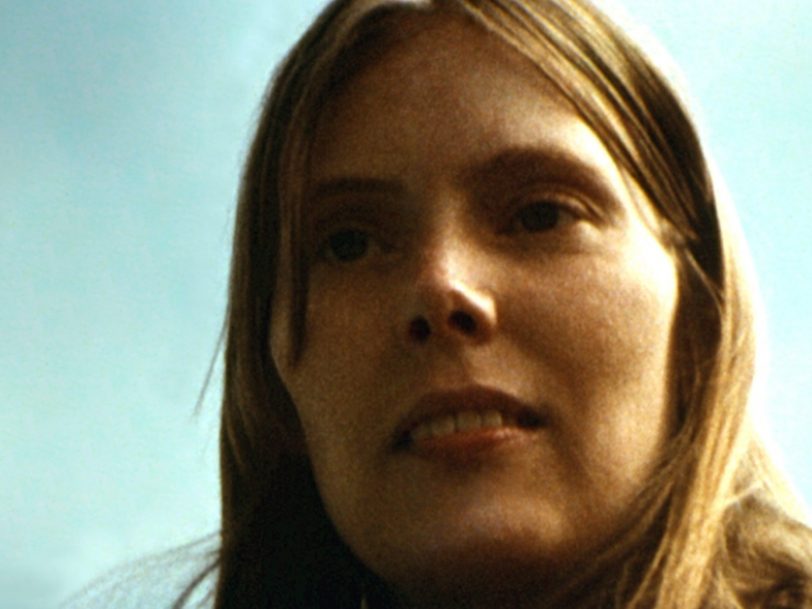To say that Joni Mitchell’s sixth album, Court And Spark, was eagerly anticipated is an understatement. 1972’s For The Roses saw the singer-songwriter breaking from the exquisite introspection of the previous year’s Blue for a set of songs more concerned with the wider world – the gender divide, her prickly relationship with fame, the inspiration she took from nature – and with a tougher perspective on relationships. The music, too, showed the first signs of a shift, with Mitchell backed by a full band, and the drifting, open-ended possibilities of jazz informing songs such as Cold Blue And Sweet Fire and Woman Of Heart And Mind. For The Roses also suggested that the mainstream success that had eluded Mitchell to this point was in reach. When David Geffen, co-founder of Asylum, her record label at the time, challenged Mitchell to write a hit, she obliged with You Turn Me On, I’m A Radio, which reached No.25 in the US.
Exploring creative possibilities
Mitchell spent much of 1973 exploring the creative possibilities that For The Roses afforded her. It was the first year since 1968 and her debut album, Song To A Seagull, that she didn’t release a new record. During that time, Mitchell moved to Los Angeles, where she stayed with Geffen and observed the glitzy pomp of the “star-making machinery” first-hand, and made the sharp mental notes that would inform the Court And Spark song People’s Parties.
Listen to ‘Court And Spark’ here.
Mitchell’s relocation also meant that she had the pick of LA’s musicians when it came to finding a band to match her ever-expanding musical ambition. She had initially called upon drummer Russ Kunkel, who’d been on percussion duties for her previous two albums, to help with the demoing of Court And Spark, but the material wasn’t a good fit for Kunkel, who suggested, “I think you should get yourself a jazz drummer.”
Mitchell hit the city’s jazz clubs to find a new set of collaborators, eventually alighting on LA Express, the jazz fusion outfit originally formed in 1973 as the backing group of saxophonist Tom Scott. Mitchell invited the band – Scott, Max Bennett (bass), Larry Carlton (guitarist), Joe Sample (keyboards) and John Guerin (drums) – to play on a few Court And Spark tracks; eventually they recorded the whole album together, backed Mitchell on the tour that followed, and provided the musical muscle for Court And Spark’s follow-up, the 1975 classic The Hissing Of Summer Lawns. Taking full advantage of her starry address book, Mitchell also enlisted The Band’s Robbie Robertson, David Crosby, Graham Nash and comedy duo Cheech And Chong for cameos on the record.
A perfect melding of jazz and traditional songwriting
With engineer Henry Levy, Mitchell and her band hunkered down for much of 1973, developing the musical understanding that would make Mitchell’s intricate arrangements feel effortless. That chemistry is evident from Court And Spark’s title track, which, opening the record, begins intimately, with Mitchell delivering a meandering melody over jazz-inflected chords. As if by sleight of hand, LA Express fall in behind her one by one – by the second verse it’s a supple, full-band affair, more sophisticated and smoother than anything on a previous Mitchell album.
- ‘Court And Spark’: A Track-By-Track Guide To Joni Mitchell’s 1974 Masterpiece
- 17 Joni Mitchell Paintings And Self-Portraits Used As Album Covers
- Best Joni Mitchell Albums: 10 Essential Records That Redrew The Boundaries For Songwriting
A perfect meeting of jazz sensibilities and traditional songwriting, the music exists to serve the song, rather than provide a vehicle for virtuosity (see the way the band drop out as Mitchell croons, “And you could complete me/I’d complete you”). That sense of serene excellence at work continues with Help Me, an ode to the dawning of a new love that manages to sound as dizzying and breathless as its subject. Released as a single in March 1974, the song took Mitchell into the US Top 10, where it peaked at No.7.




